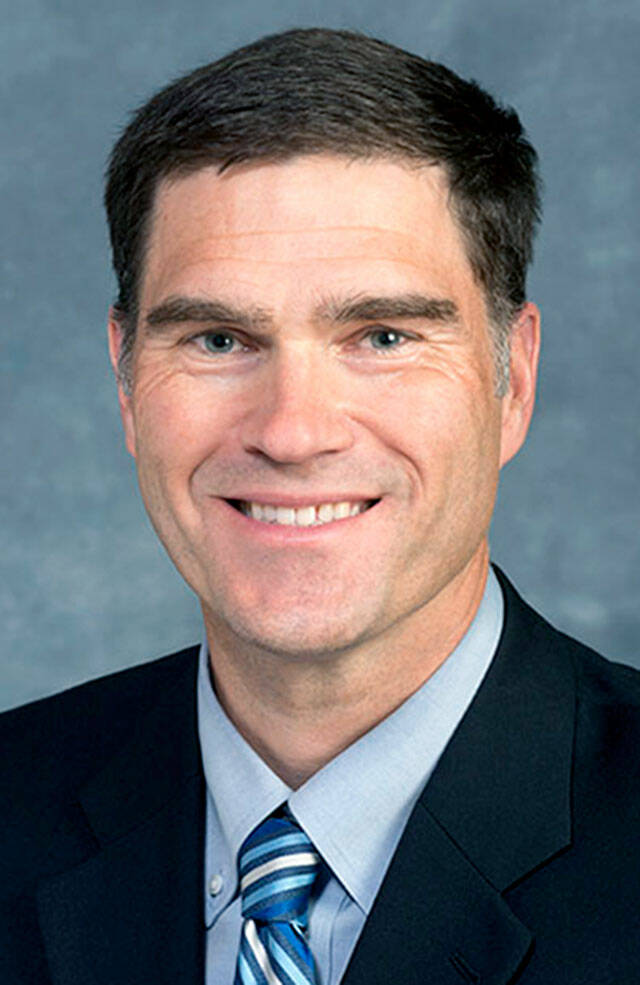Olympic Medical Center CEO Darryl Wolfe spent a “very intense day on the Hill” on a trip to Washington, D.C., to advocate for rural hospitals that have been facing renewed and critical financial challenges.
Wolfe told the board of commissioners on June 19 that he visited the offices of U.S. Sen. Patty Murray, D-Seattle, U.S. Sen. Maria Cantwell, D-Mountlake Terrace, and U.S. Rep. Derek Kilmer, D-Gig Harbor, the week prior, and he met with other Washington representatives and staffs from the Senate Finance Committee, the House Ways and Means Committee and the House Energy and Commerce Committee.
Improving Medicare reimbursements that do not cover the cost to deliver care was a primary topic, he said.
“Washington state right now has a lot of really high-ranking folks on these committees, and these are the kind of committees that, if you want to get legislation done this year, these are key places that you need to try to get them through,” Wolfe said.
“Everyone hears us and understands the problem.”
Wolfe praised Kilmer for his assistance.
“He’s been a real warrior in our efforts,” Wolfe said. “He’s really doing all he can from his position before he leaves the House.”
Wolfe will speak to local groups and service organizations over the next month about the levy lid lift on the Aug. 6 primary election ballot.
If approved, it would increase Hospital District 2’s levy from the current $0.31 to $0.75 per $1,000 of assessed property value.
If approved, the new levy would generate $12,073,793 annually — about 2½ times the $4,990,501 generated by the current levy.
Meanwhile, OMC has yet to find a replacement for chief physician officer Joshua Jones, who left in November 2023, and it will hire a retired physician from Oregon to fill the role on an interim basis while it continues to interview candidates.
“I’m optimistic that we’ll be able to fill that position in the coming months,” Wolfe said. “It’s taking far longer than I had hoped, and I think the interim will be helpful.”
The hospital continues to struggle recruiting clinical staff such as nurses, respiratory therapists and medical assistants. It filled 66 positions in the first quarter — lower than the first quarters of 2022 (81 positions) and 2023 (87 positions).
“It’s a bit lower than what we would have liked to see,” said Heather Delplain, administrative director of human resources. “We do still have a hiring freeze in place, so we had less positions posted than in other first quarters.”
Reducing the number of travelers — temporary, non-staff workers — has been a cost-cutting priority at OMC because their pay rate is significantly higher than that of permanent staff. Delplain said the number of travelers has been “holding steady” at about 43 over the past few months.
The positive news, she said, is that many travelers have decided to stay at OMC.
“We’ve had good success converting travelers into permanent employees, and that has been continuous,” she said. “Every one who converts I feel so happy about it because they chose us to be their permanent position.”
Commissioner Philip Giuntoli asked what some of the challenges are in recruiting.
Delplain said that, while money was an issue, candidates who turned down job offers gave reasons like the housing shortage, lack of affordable childcare and partners being unable to find work as factors in their decision.
Commissioner John Nutter, who chaired the meeting in place of board President Thom Hightower, who participated via video, said a recent study estimated there was a shortage of more child care slots for children.
“We can’t solve this on our own,” he said.
In his credential report to the board, Dr. Jonathan Freezer, chief of staff of the medical staff, said urologist Dr. Carleen Bensen will be coming out of retirement to re-join OMC in a non-surgical capacity.
OMC has recruited two new urologists who will join the hospital this fall.



